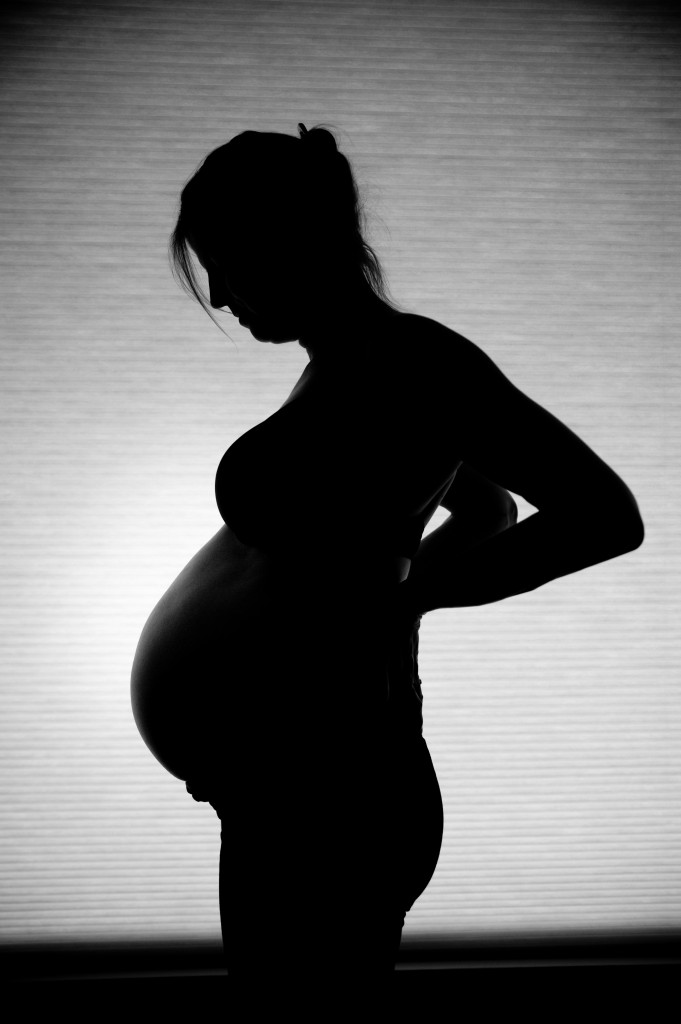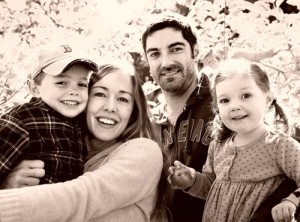I’m a local doula and childbirth educator, and more importantly for this post, a MOTHER. As part of my Preparation for Birth series, I cover the immediate postpartum period to help prepare expectant women for what’s to come. Mostly we focus on the first couple of days and some about the first couple of months termed the “Fourth Trimester,” but it doesn’t actually end there, does it? We don’t bounce back at the six week check-up or even after a full 3 months after birth.

What would it look like to be TRULY prepared for motherhood? Is it even possible before living it yourself??
Once when I was dropping business cards off at a local obgyn/midwife practice, I bumped into a mom from a previous childbirth class and her pregnant sister. She was waiting to go in for her six week postpartum check-up. I asked how things were going and she answered, “Pretty well. I’m still sore, nursing is going well, baby is gaining weight,” and all the normal stuff you’d expect to hear. And then she got really quiet and in a very hush, hush voice said, “But the other day, I was kidding around laughing and I peed myself. Like peed my pants.” I immediately said, “Oh yeah, totally normal, usually temporary, and remember Kegels!” And even with her sister’s loud “I told you so,” the mom sighed a big sigh of relief and felt much better. And then she asked, “Why does NO-ONE tell you about this???”
Childbirth Connection, a well-respected pregnancy and parenting resource, worked to unveil the mysterious realities of motherhood. For the 2006/2008 Childbirth Connection study they surveyed over 1500 women across the nation about their postpartum recovery, and these are some highlights of their findings along with some added tips and details:
Cesareans – Pain at the incision site and numbness can last usually up to 6 months, and for some women the sensation never fully returns.
Painful perineum – About half of women in the first two months experience this, and for some it continues beyond the postpartum check-up mark, so even when the green light is given to resume sex, for some women it’s too soon.
Sore nipples/breast tenderness – Breastfeeding is the most natural thing, but not necessarily the easiest to master, especially if you’re dealing with cracked nipples, engorgement, or a breast infection. With the right amount of sound advice and support and patience, it can become simple and so convenient.
Painful intercourse – This is experienced by 1 in 3 women in the first two months. At 6 months, it’s still a problem for 10% of women. Beyond a healing perineum, it could be a tilted uterus (more on this later). Pubic bone damage can occur during birth and is usually temporary; core exercises and chiropractic work can help.
Other breastfeeding problems – Not specified, but I can think of one… LEAKING?!? Especially during really inopportune moments: trying to nurse in public for the first couple of times and your shirt is drenched with milk that leaked out the other side, and during those (rare!) intimate moments when you’re just trying to feel like a normal adult again. A sense of humor is pretty much mandatory to get through all these tribulations.
One more fun one about breastfeeding: When you’re done breastfeeding or pretty soon after birth if you’re not nursing, you get the life-long consolation prize of your “girls” NEVER looking quite the same. This is mainly due to pregnancy changes- weight gain and your body prepping for nursing, and there’s nothing you can do but try to take pride in your truly amazing body for growing life.
Bowel problems – This means constipation and for some women (especially those with severe tears or episiotomies) issues controlling bowels. A healthy diet with lots of fiber and staying hydrated helps, as well as stool softeners and exercise (post initial recovery).
Urinary problems – Leaking pee. Not uncommon and I’ve read research that says by mid-life many women experience some degree of incontinence regardless of if they gave birth vaginally, via cesarean, or if they’ve never had children. Immediately after birth, it’s just due to the stretching and your urinary tract can be damaged during baby’s descent. Kegels can strengthen those muscles!
Skin – Stretch marks become considerably less noticeable 6-12 months postpartum- pigmentation fades and they become lighter. Linea Nigra (dark line on forehead and/or low belly) gradually fades but may not ever disappear.
Hair – Dramatic changes during pregnancy and postpartum due to fluctuating hormones. Changes can last up to 2 years. Hair loss after pregnancy is a certainty. It peaks at 6 months, which can be worrisome when you clog the drain after 30 seconds in the shower, but there is new growth which should be strong and healthy.
Feet – Relaxin is released during pregnancy, which allows joints and ligaments to be more flexible. It’s helpful for birth, but gives you that lovely pregnancy waddle, puts you at greater risk for injury, and can make your feet grow!
How? Relaxin relaxes the ligaments in your feet to the point that your bones separate somewhat. The extra weight you’re carrying during pregnancy puts more pressure on your arches, encouraging them to fall. That combo can permanently increase your shoe size! Swelling can also temporarily have this effect, but is relieved when the extra fluids are released after birth.
Periods – There is such a range of when they will return and how they’ll be once they do. They can be heavier or lighter/ longer or shorter, and can be irregular for months. Many women have more uncomfortable cramps. In our 30’s, hormonal changes can cause increased PMS symptoms and period changes as well (yay!).
There are two topics that require deeper investigation. Check the following symptom lists and follow the links to learn more.
Pelvic floor weakening symptoms:
- Urinary or stool incontinence
- Constipation or incomplete bowel or bladder emptying
- Diminished sexual satisfaction
- Painful Intercourse
- Inability to reach orgasm
- Sagging or prolapse of uterus, bladder, or rectum
- Low back or lower abdomen pain
Helpful link: http://142.4.8.79/~wholept/dev/pelvic-floor-health-strengthening-core/
Tilted Uterus Symptoms:
- Pain during intercourse
- Pain during menstruation
- Back pain during intercourse
- Minor incontinence
- UTIs
- Fertility problems
- Difficulty using tampons
Helpful link: http://americanpregnancy.org/womenshealth/tippeduterus.html
We all know what all the sacrifice is for and why these after-birth changes are undeniably worth it… That sweet little person you miraculously created and will love and worry about for the rest of your life! Let’s put our guards down and open our hearts to support one another through these adjustments. Motherhood is enlightening, exhausting, unpredictable, joyful, gut wrenching and heart-warming. Motherhood is beautiful, and so are all of us- in all our forms- for experiencing the depth of this amazing transformation.
[typography font=”Satisfy” size=”24″ size_format=”px”]Written By: Francesca Arnoldy[/typography]

Francesca is an experienced, certified childbirth educator & doula. Before becoming involved in the birth world, she graduated from UVM and worked in the social services field. Becoming a mother opened her mind and heart to this new career path. She feels that being invited into people’s intimate birthing experiences is an honor and privilege.
She has a solo doula practice, VT Birth Haven and teaches holistic group childbirth classes at Eastern View Integrative Medicine. You can contact Francesca at [email protected] or by phone: (802) 578-2458
“Like” VT Birth Haven’s Facebook page and help spread the doula love!









